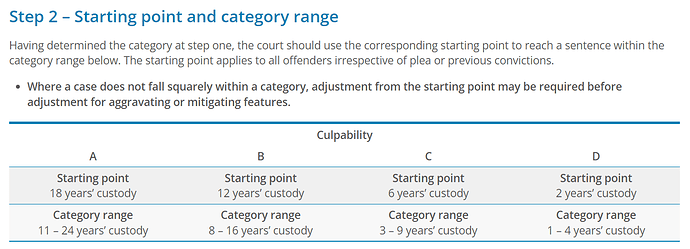You have been convicted of manslaughter after a re-trial. You gave no evidence at trial one or two. In broad terms, the issue at trial was whether what took place might have been an accident, self-defence or unlawful violence. You were convicted unanimously by the jury.
Most of what took place was captured on camera footage. You were walking on the pavement. You resented the presence of an oncoming cyclist. The footage shows you shouting aggressively and waving your left arm. You do not stop, slow down or move to one side. You are territorial about the pavement and not worried for your own safety. After careful thought, I concluded these actions are not explained by your disabilities.
The court heard evidence from a number of witnesses, and I found William Walker to be reliable and thoughtful. He is a cyclist and driver. He said that you and Mrs Ward appeared to have come to a halt in front of each other and you made a lateral sweeping movement with your left arm which was directed at Mrs Ward. He said “it either made contact or she recoiled and fell”. She fell into the busy ring road where she was killed by a passing car driven by Carla Money.
This was, I think, a shared path for cyclists and pedestrians that allowed them to go around the busy ring road. The vital point is this: I am sure you knew cyclists used that path and you were not taken by surprise or in fear for your safety. The path at the point of collision 2.4 metres wide.
I have considered the evidence about eyesight and the CCTV footage and visual impairment was not a factor in this incident.
You and Mrs Ward both welcomed the safety of the pavement. She because she was an elderly cyclist and you because of your disabilities. Consideration for other road users is the lesson of this tragic case. We are all road users, whether as motorists, cyclists or on foot.
I have been referred to the guidelines on unlawful act manslaughter issued by the Sentencing Council and have heard submissions from both parties.
In terms of the guidance, looking at these matters in the round, culpability C is made out, but towards the lower end of the scale.
A starting point of four years seems just, based on my finding that the sweep of your arm was an intentional act but being reckless as to whether harm would be caused.
I reject the submission that this is best framed in terms of category D for reasons I have indicated.
Aggravating factors
The vulnerability of Mrs Ward who was on a bike.
The effect on Mrs Carla Money (in so far as her first statement extends). Her enduring distress is entirely foreseeable.
Matters reducing seriousness and personal mitigation
You offered assistance at the scene, but you were turned away by others. But, on the other hand, you then left before police arrived and went off to do shopping. You were evasive when police traced you and told lies in interview.
You have no convictions or cautions or reprimands. You are 49 years old. This stands to your credit.
Your medical history and significant disabilities would have crushed many but you have endured all that in a commendable way. Until now have demonstrated a positive lifestyle and I have no doubt that over the years you have endured all kinds of difficulties when going around the town centre which may have made you angry on this occasion. In any event, your prior good character stands to your credit.
Is there a mental disorder bearing on these issues? I do not think so.
As to learning difficulties, there are none. Much was made in cross examination of what witnesses referred to as a “childlike face”. In fact you went to a mainstream school and denied in interview having any impairment of intellect. That is not decisive, in my view and I put it to one side. Both experts suggested that the childhood surgery resulted in “a degree of cognitive impairment”. (In my view, these difficulties do not bear on your understanding of what is right and wrong and what is appropriate or not). I should say that I saw the video your police interviews, I read the character statements detailing your lifestyle. I have also read the pre-sentence report and medical evidence and have learned as much about you as I can.
Remorse. There has not been a word about remorse from you until the pre-sentence report was prepared, and here there is a reference to remorse which has never been passed on to the Ward family. In this regard I accept your counsel’s explanation that this may be a function of your disabilities and do not hold it against you.
There has been a delay in getting this case to trial. This is a mitigating factor I must take into account in your favour.
I also take into account the particular difficulties, occasioned by your disabilities, that you will face in prison and when you emerge.
Balancing all these considerations, the proper sentence is three years imprisonment.






